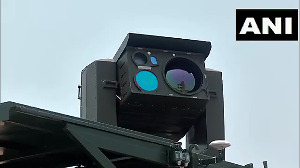Activists Arvind Kejriwal, Prashant Bhushan and Yogendra Yadav also accused the government of raising the bogey of exchequer facing losses due to various subsidies.
"The parties have began their drama. They will now shout and scream. After three-four days of protest, the government will reduce the price by Re 1. Then everybody will fall silent...this script has been enacted so many times," Kejriwal claimed.
Accusing the Bharatiya Janata Party and United Progressive Alliance ally Trinamool of paying just lip service, he asked why the governments led by these parties in states cannot reduce tax on diesel and bring down prices. Loss can be recovered by checking corruption, he added.
"You can allocate coal blocks for free. But we don't have money for giving it to common man. Rs 13 lakh crore tax concessions have been given to corporates in last three years. Can't the government give Rs 37,500 crore subsidy on LPG?" Kejriwal asked.
He found fault with the Trinamool's opposition to the price hike, saying its Union minister Mukul Roy did not attend the meeting on diesel pricing.
Some MPs got more than 300 LPG cylinders per year but the government is now asking people to be contend with six, Kejriwal claimed.
Bhushan accused the government of selling productive oil and gas fields to private players over the time and saying now that it does not have money in exchequer.
"We are seeing national resources being looted," he said demanding a probe into the issue.
Asked about the apex court order directing the Centre to explain if guidelines were strictly followed in coal block allocations, Bhushan said it was a "welcome step" though he felt that the petition was not a "very comprehensive" one.
"We will be filing a more comprehensive petition by the end of next week, in which we will be seeking not only an independent investigation in this allocation but also cancellation of all these allocations on the ground that they arbitrary, malafide and corrupt," Bhushan said.
On the Supreme Court order on having retired judges to head the information commissions, he said it meant that central and state information commissions will need at least 160 judges. "All decisions will be taken by a bench which should have one judge. This means even if all the judges are employed, even then all the posts cannot be filled. This will mean more than half of the posts remain empty and the current backlog will just keep on increasing," the lawyer-activist said.










 © 2025
© 2025